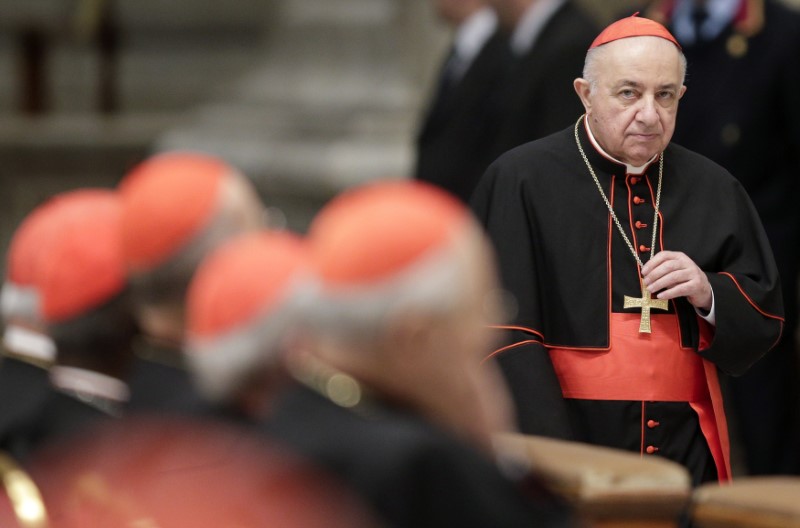VATICAN CITY (Reuters) - Cardinal Dionigi Tettamanzi, once seen as a possible contender to become pope, died on Saturday at the age of 83, the Milan diocese said on its website.
Tettamanzi was made archbishop of the Italian port city of Genoa in 1995 and in 2002 moved to nearby Milan, one of the world's largest dioceses with some 5 million faithful and 1,000 parishes. He had become a cardinal in 1998.
"A key figure of Milan's social and religious history has disappeared," Milan's mayor Giuseppe Sala said in a note.
Pope Francis wrote to Milan's outgoing Archbishop Angelo Scola and his successor Mario Delpini to express his condolences over the departure of one of "the most loveable and beloved" prelates of the Milanese diocese.
A prolific writer, Tettamanzi helped Pope John Paul draft some of his encyclicals and was seen by some Vatican watchers as a potential candidate to replace the Polish pontiff when he died in 2005.
But he was little known outside his native Italy and fellow cardinals instead elected Josef Ratzinger as pope.
While archbishop of Genoa, Tettamanzi defended anti-globalisation protesters who besieged a Group of Eight summit there in 2001. "A single African child sick with AIDS counts more than the entire universe," he said at the time.

He stood out by deciding that pilgrims visiting Genoa for the 2000 Holy Year should stop not only at the city's great churches but also an old people's home to get a special indulgence for the jubilee millennium year.Tettamanzi was born in Renate near Milan on March 14, 1934. He began studying as a priest at the age of 11 and was ordained at 23 by the then-archbishop of Milan, Giovanni Battista Montini, who went on to become Pope Paul VI.